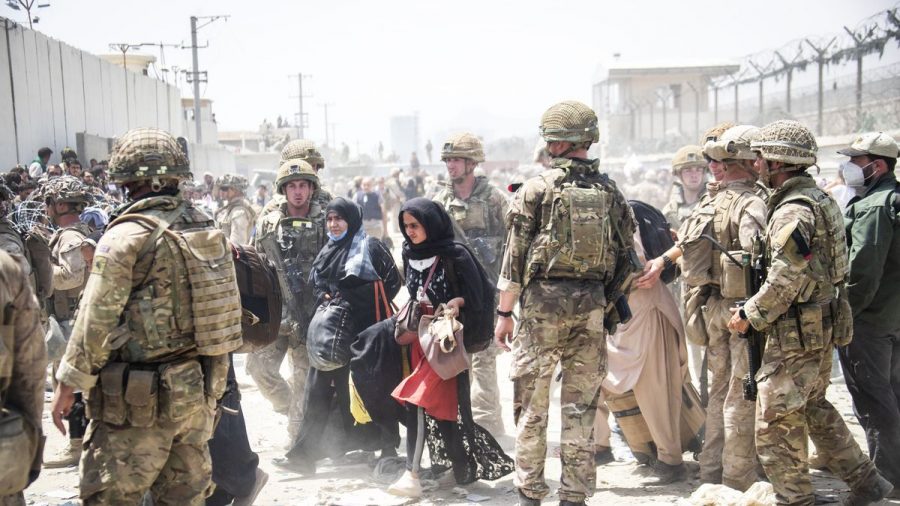U.S. withdraws from Aghanistan
November 3, 2021
Thirteen U.S. military members and about 60 Afghans were killed in bombing attacks on the Kabul Airport on Aug. 26 as the U.S. and other countries scrambled to evacuate the country after the Taliban’s takeover. It is unknown who carried out the attack, however ISIS in Khorasan (ISIS-K) claimed that an ISIS militant was behind the bombing, although there is no proof to support the accusation. According to Reuters, President Joe Biden has announced that he directed U.S. military commanders “to develop operational plans to strike ISIS-K assets, leadership, and facilities.”
America’s war with Afghanistan has been a long and gruesome one. Since Al-Qaeda’s terrorist attacks on 9/11, tensions with Afghanistan have been running high. Soon after the incursion, the U.S. invaded Afghanistan, determined to eliminate the terrorist group along with the Taliban and replace the chaos with democracy. However, their attempt was a tremendous failure, with incomplete promises and a frenzied, hurried exit of the U.S. troops from Afghanistan. The U.S. withdrew from the Middle Eastern nation on Aug. 30, 2021, ending 20 years of war with no improvements to the country’s condition.
The U.N. responded to the Taliban’s uprising by centering on women and human rights and “the full, equal and meaningful participation of women and upholding human rights,” expanding the U.N.’s political mission order set in Afghanistan to six months. The U.N. also said that they would still play a part in maintaining “promoting peace and stability in Afghanistan.” It ensured they still had the right to protect civilians and human rights, and report violations.
In September, the Taliban wrote to the U.N., asking for a seat and international acknowledgement of their rule. They insisted they have the requirements to be endorsed as a government. The U.N. denied them, as allowing the Taliban a platform would send a harmful message to other countries and promote violence.
“Taliban does not represent the will of the Afghan people,” Afghanistan’s ambassador Nasir Andisha said in response to the Taliban’s request to join the U.N.
Under the rule of the Taliban, Afghanistan is facing a number of humanitarian crises and is on the brink of poverty due to political corruption. The Taliban has promised to be inclusive and equal, however girls are still prohibited from attending school, there are restrictions on freedom of the media, and they have turned to cruel exercises such as hanging dead bodies in city squares to incite fear.
Students at Madison are intent on helping Afghans in any way they can. Members of the Middle Eastern Culture Club (MECC) are working to provide awareness and establish individuality for Middle Eastern students.
“I think it’s really important that Middle Eastern people get a space to express themselves and make noise,” Layla Hasanzadah (’22) said.
Her response to the situation in Afghanistan was one of horror and sadness.
“It’s horrific,” Hasanzadah said. “It sucks to see your people getting murdered every day.”
She goes in-depth about being on the other side of the situation, and how it affects her family and their everyday life. Hasanzadah emphasized the importance of activism, and she makes it clear that being an advocate for Afghanistan is extremely important to her.
Moreover, the MECC has been administering efforts to contribute to the crisis in Afghanistan.
“I do believe we’re going to do some kind of donation drives to raise awareness,” Hasanzadah said. “I do think it’s important to clarify the facts because I don’t think a lot of people really know what’s going on.”



